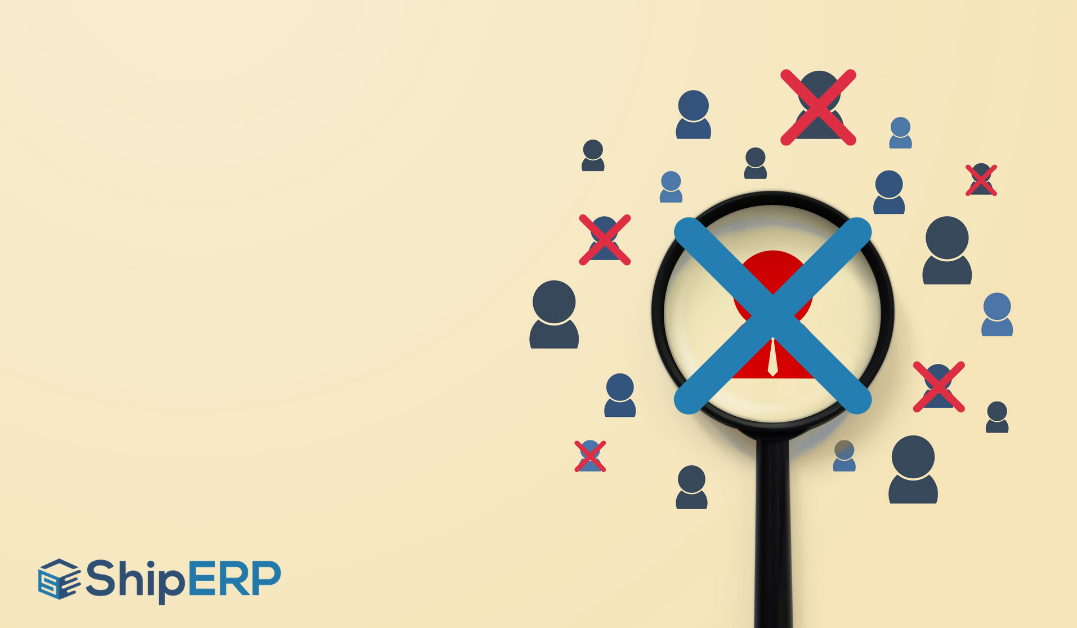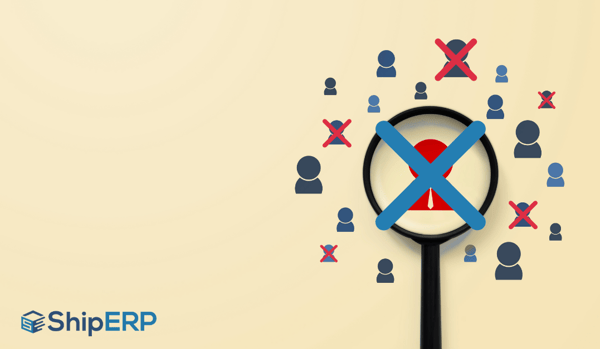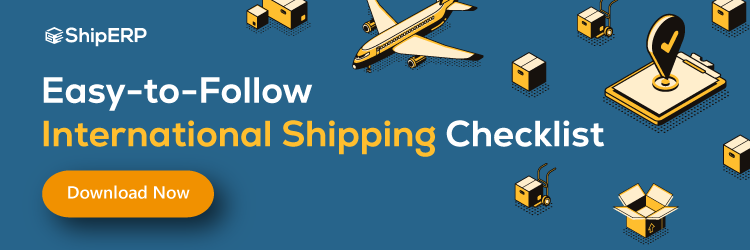
Denied Party Screening: How to Avoid Shipping to the Bad Guys
Did you know that the U.S. government has restrictions based on whom businesses can ship goods to? If you didn’t, you need to know that U.S. agencies publish updated lists that list a combination of people and businesses restricted from receiving exported U.S. goods.
By the end of this, you’ll fully understand denied party screening lists, why people and companies end up on them, and how your business can avoid being on these lists.
What is Denied Party Screening?
Denied party screening is a screening process that cross-references a list containing many people and companies restricted from receiving U.S. exported goods. If a business doesn’t abide by these denied party screening lists, it will have violated U.S. law. A punishment for violating the law results in hefty fines or the denial of exporting privileges.
The U.S. government requires every exporter to perform screening regularly to ensure they don’t violate the law because the lists update quite frequently, sometimes daily. While screening can take some time, companies use software that automatically screens the company’s client database to identify if any clients are a denied party. This technology protects businesses from expensive fines and prevents them from violating the law.
Do you use this robust denied party screening technology today in your shipping process?
Who Publishes the Denied Persons List?
The denied persons list, also known as restricted party lists, is published by the Department of Commerce, Department of State, and Department of Treasury in the United States. Third-party agencies, like MK Data Services, also publishes these lists in easy-to-use screening software for clients. Each of these agencies suggests that exporters execute denied party screening often throughout the shipping process.

Why Do Companies End Up on the Denied Persons List?
Denied party screening assesses companies that may be at risk to the U.S. If a business is at risk, then U.S. exporters cannot do business with them. There are various reasons as to why a company may end up on the denied persons list:
- The company may be a terrorist organization or is affiliated with one.
- There is evidence of a history of corrupt business practices.
- They pose an overall threat to U.S. national security.
What are the consequences of working with someone on a denied persons list?
The punishment for working with companies on the denied persons list can result in denial of exporting privileges or civil/criminal prosecution. The Bureau of Industry and Security (BIS) reported that export violation fines could cost up to $1 million in criminal cases. On the other hand, administrative cases resulting in penalty costs up to $250,000 and sometimes twice that.
Some criminal prosecutions ended up in sentences at 20 years, and administrative penalties resulted in denial of export privileges. Many negative things can happen to your business if you work with a restricted individual or company. The U.S. Department of Commerce warns us of this in "Don’t Let This Happen to You!"
How can you avoid violating federal regulations?
TIt’s recommended for exporters like yourself to do regular denied party screening so that you avoid breaking federal law and paying penalties. If a business doesn’t regularly screen its clients, it’s more likely to export goods to a restricted business and has to pay the penalty or suffer criminal or civil prosecution.
The U.S. Department of Commerce published a guide to prevent businesses from doing business with restricted individuals or companies. To avoid violating federal regulation, the suggested advice from the U.S. agency is as follows:
- Recognize and avoid prohibited transactions by understanding the Export Administration Regulations’ guide “Know Your Customer Guidance.” Steer away from violating U.S. law!
- When screening your clients, make sure to be on the lookout for red-flag indicators. If you think that your client raises a red flag, you’ll need to do your due diligence to follow a more intricate process to ensure you can do business with this individual or company.
- Make sure to check every party that is a part of the transaction (including freight forwarders, intermediate consignees, and the ultimate consignee) against a denial party screening software or the U.S. Government Lists to Check. These lists will inform you if any of the parties are on the denied persons list so you can know if you can move ahead with the transaction or not.
- If you think you may be in an illegal export transaction, you should immediately contact the BIS’s Office of Export Enforcement.
If companies follow these guidelines, they are less likely to end up on a denied persons list. The most important thing for exporters to do is screen their clients regularly to ensure they don’t make a mistake that can result in various consequences.

What to Do If Red Flags Are Present During An Export Transaction
If you screen a client and notice that red flags are present, you’ll need to follow a list of steps to figure out what to do next.
Step 1: Check to See If There Are Red Flags
If you’re about to partake in an export transaction and the circumstance begins to feel abnormal, this would be considered a red flag. For example, the export may be an inappropriate end-use, a prohibited end-user, or an invalid destination.
You may also want to pay attention to these red flags:
- Ordered items aren’t consistent with your customer’s needs
- Customer declining installation and testing when it’s included in sales price or when is usually asked for
- Requests for equipment configurations don’t match the stated destination
If you want more examples of red flag indicators, the BIS developed this list to give companies a better idea of what to look out for. Make sure to do a denied party screening test to confirm if the purchaser is on the restricted lists even if there are no red flags.
Step 2: If There Are Red Flags Present
If you’ve done your denied party screening and your client doesn’t have any red flags, then your transaction should be safe to proceed. The only time a company will have to do its due diligence is when red flags appear on the list with the exporter’s purchaser.
The Export Administration Regulations (EAR) require companies to obtain documentary evidence about the transaction. According to the U.S. Department of Commerce, misrepresentation or concealment of material facts is prohibited, both in the licensing process and in all export control documents.

Step 3: Do Not Refrain from Asking Questions
It’s critical that you always ask questions rather than not ask at all. For example, some companies may avoid discussing the end-use, end-user, and the country destination the goods will be going to with the purchase. Limiting the amount of information gathered to avoid doing one’s due diligence, however, can be seen as an “aggravating factor” in enforcement proceedings.
It’s better to keep an eye out for red flags from the very beginning of the transaction to avoid any penalties or fines that your business may incur.
Step 4: Assess the Transaction Information
Now companies need to re-evaluate all of the information they’ve learned about this transaction to determine if it’s legitimate or suspicious. If the information points to legitimacy, then the company can continue with the sale. If the red flags point toward suspicion, the company needs to stop the transaction or risk violating U.S. law.
Step 5: Cancel the Transaction and Report to the BIS
If the red flags point towards suspicion, then the company should stay away from the transaction or submit an application to the BIS for a validated license. Contact the BIS Office of Export Enforcement if you’re working with a purchaser who has raised red flags or use this form to submit a confidential tip.
Your Next Steps for Stress-Free Denied Party Screening
If companies want to avoid being on the denied persons list, they need to run denied party screenings for every transaction regularly. Since the denied persons frequently list updates, some organizations may fall through the cracks even after the transaction.
How can you save your company from penalties then?
The solution to this challenge is to automatically and continuously run denied party screenings at every shipping stage! With this, you can prevent shipments before they’re out the door.
If you’re looking for a denied party screening software that can do the work for your company with ease, then sign up for a product demo of ShipDPS. The denied party screening software will help your business assess its clients quickly and easily, so you can avoid any future penalties with the U.S. government.


